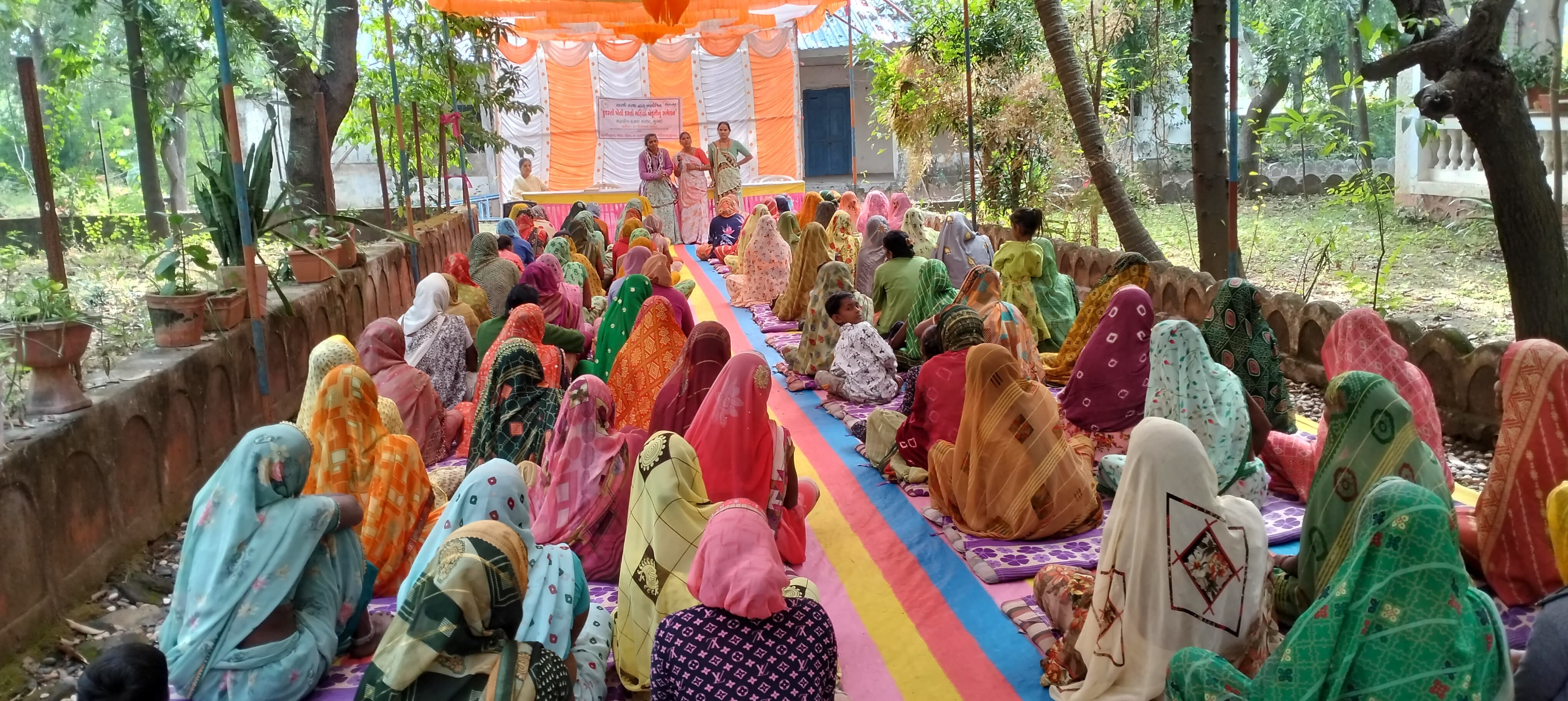SARTHI's Women's Empowerment Program is a comprehensive initiative designed to uplift and empower women, particularly in rural and marginalized communities, through a combination of educational, economic, and social support. The program aims to create an environment where women have the knowledge, skills, and confidence to improve their socio-economic status, exercise
Self Help Groups
SARTHI began working with Women’s Self-Help Groups (SHGs) in 1988 to empower rural women by providing access to credit for productive assets, creating employment, and securing income. Over time, these groups evolved into platforms for women’s empowerment in areas like health, legal rights, and Panchayati Raj. SARTHI worked with 417 SHGs in 200 villages across four districts (including Dungarpur, Rajasthan), with 5,763 members. The groups have gained collective strength, and by organizing at the federation level, women have become a powerful voice for change, challenging traditional male dominance and improving women’s status in the public sphere.
In SHG meetings, women’s health issues are prioritized, and members educate local health workers. Leadership training and exposure visits have empowered women, while men have begun recognizing women’s ability to manage money and participate in savings groups. Initially concerned about household duties, men now help with chores and respect women’s roles. SHGs have broken women’s isolation, providing a space to discuss health, legal rights, and education. Gender discrimination and limited access to education for girls are being challenged, improving the future for young girls.
SARTHI has registered six federations of tribal women, with 3,228 members from 221 SHGs, providing a platform for collective empowerment. Additionally, SARTHI has linked all its SHGs to the government’s Mission Mangalam scheme, promoted natural farming, and initiated work on women’s property rights, enrolling women for land ownership.
Forest Rights Act
SARTHI conducted a study to assess awareness and implementation of the Forest Rights Act (FRA) 2006 in the tribal community. The FRA aims to recognize the traditional rights of Scheduled Tribes and Other Traditional Forest Dwellers.
To raise awareness, SARTHI organized training programs and campaigns on FRA provisions. The organization also gathered information from villagers interested in applying for Forest Land Rights.
Key activities and Women’s institutions:
- Gender sensitization camps-200
- Training and awareness on reproductive health
- Program with WGWLO for women property right
- Activities with Women Self Help Groups-
- Camps on Domestic Violence Act (DVA)-120
- Training to elected members on Panchayati Raj -200
- Varsai Camps (property inheritance)-80
Formation and Strengthening of Community Based Organization
- Formation of Farmer Producer Organization (FPOs)-5
- Women SHGs 443
- Cluster level federation –SHGs – 6
- Sahiyar Mahila Vikas Sangthan (registered) – 1
- Ekal nari Taluka level munch(Santrampur Kadana,Shahera)– 3
- Ekal nari District level munch - 1
- Taluka level women Panchayat Manch(Santrampur, Kadana, Shahera) -3
- District level women Panchayat Manch – 1
- Panchayat Support Groups – 15
- Cluster level Panchayat Support Group – 2
- VDC (60 in tribal and 30 in MVTG) – 90
- Cluster level Manch for Ann Ane Ajivika Adhikar – 9
- Panchamahals Dai Sangh-217 members – 1
Entrepreneurship
- 1500 women are involved in the Animal Husbandry, poultry, kitchen garden and agriculture.
- 500women have been trained in preparation of vermi compost.
- 500 women started small business outlets in their villages.
- 200 weavers (handloom and Panja dary) trained by the organization.
- 100 farmers have been adopted newly varieties from ICRISAT of pigeon pea (Pigeon pea variety ICPL-87, 87091, 85010, 88034, 88039, 13092, 87119, 96058 which is short duration and drought resistant) and Chick pea (chick pea variety ICCC-37, KAK-2, JG-11, JGK-1) crop.
- 500 women has involved in natural farming
- 205 Dungar dai (Barefoot Vat) trained to provide the service in 205 villages




